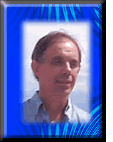'Tales from the Afterlife'

In his review of David Eagleman's SUM, Nicholas Lezard ponders what Brian Eno's 'opera' of the book will be like.
Having just returned from its debut performance (as TALES FROM THE AFTERLIFE) at the Sydney Opera House, I can clue him in. This was more a different way of delivering text than an opera, thirteen of us reading twelve of the tales (twins reading one, their very similar voices trading their sentences). They chose us for a different range of voices, from the two children who opened and closed the event through a mixture of ages, cultures, accents, both male and female. I was the English voice, delivering the short story 'Angst'. It was pleasing to discover layers of language and meaning through the rehearsal process.
Brian's aim, as he mentioned in the ClientEarth forum the following day, is to show how culture has a different route to follow than the fast and furious one of rapid and graphic images, all high volume and high testosterone. Instead, TALES FROM THE AFTERLIFE shows the 'other direction - make it quieter, less eventful. There's a lot of empty bandwidth there... Slowness and stillness is a message. It questions the progress myth, the idea that the future is going to be faster. It should be slower and more meditative.'
Brian read SUM in one burst when he discovered it, but his subsequent readings of the book were more gradual and considered. His idea was that reading to music would slow down the delivery process, and possibly build up some cumulative power. He wrote, and performed live, pieces for each of the segments. Our direction was to take our time, find pauses wherever they felt right, letting Brian's music play around us. As the lights dimmed at the close, and then rose again to halflight the audience (it was odd, looking out at the Opera House, how spectrally grey the audience was during performance, as though they were inhabiting the afterlife), Brian's music dimmed then swelled again, somehow gathering in the collective power of the readings, quite thrilling and moving.
I liked David Eagleman's enthusiasm - he read a story himself and is a neuroscientist at Houston University, his new specialty synesthesia. His next fiction project looks at the possibility of being a 'possibillion' - holding onto some middle-ground between atheism and agnosticism, recognizing that the mind finds more fun in exploring possibilities than dismissing them. The whole AFTERLIFE event was a playful and surprisingly successful attempt at lifting words from the page, rendering a group experience out of their performance.
Labels: Brian Eno; David Eagleman; Luminous Festival; Sydney Opera House


1 Comments:
Heard half an item this a.m. on BBC4. Was it you? I'd like to be in touch. I am a writer. My e-address is:[email protected]
Post a Comment
Links to this post:
Create a Link
<< Home